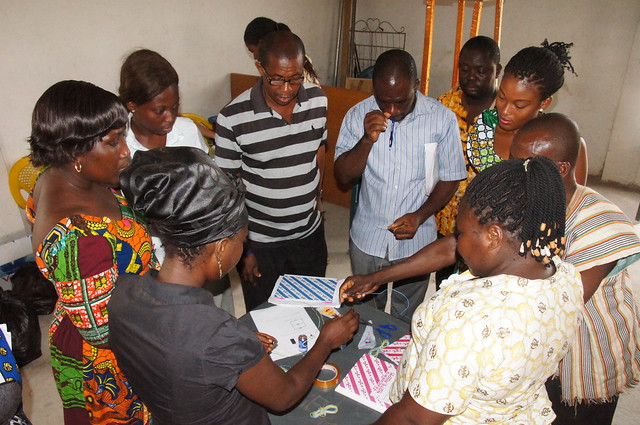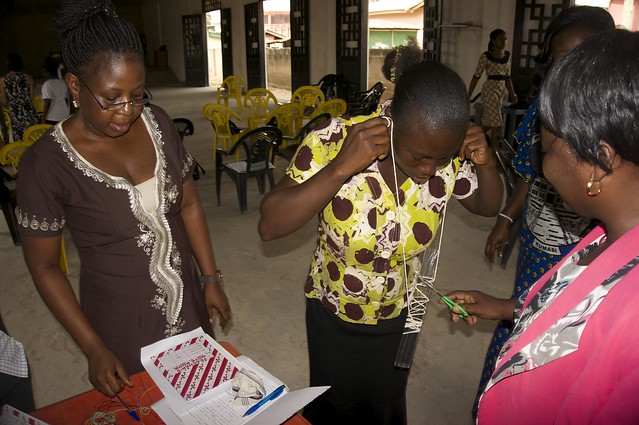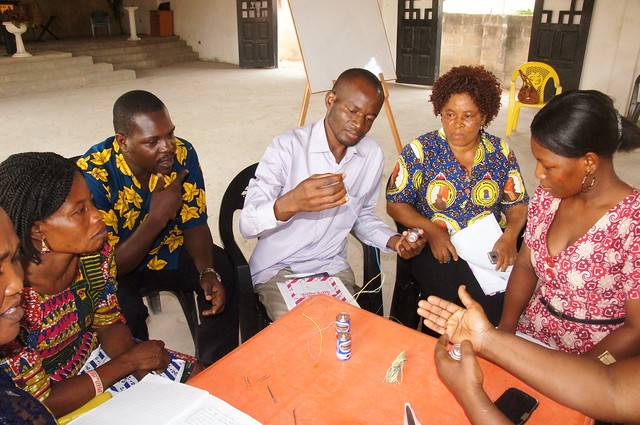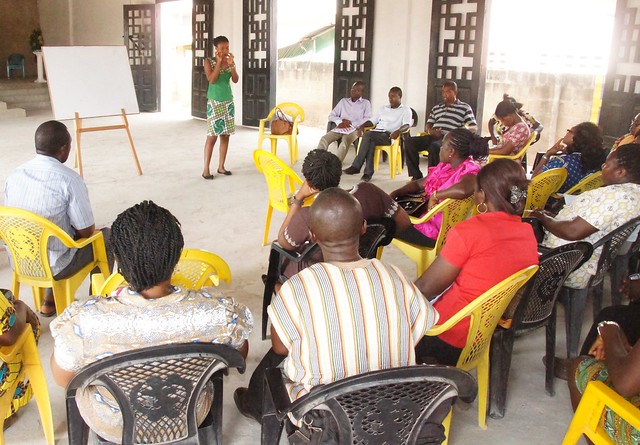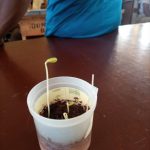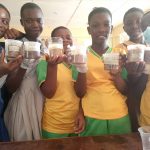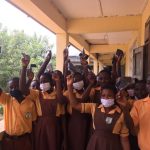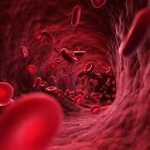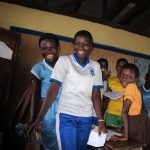No more rote learning. Hands-on teaching workshop
In the absence of learning materials, science is often taught by rote. The transmission of this pedagogical style is entrenched in the public schools of Ghana (and many other places, including the US) because we teach the way we are taught. The Girls Science Exploratory Club Initiative seeks to change this.
Our goal is to interrupt the transmission of rote learning in science.
In early February, we conducted a pilot teaching workshop for ~25 teachers who have been recruited to join the initiative. The training was designed to introduce the teachers to two key ideas. One is the use of questions – to encourage sciencing skills, from observation to critical thinking. The other is to illustrate the range of freedom at which an “activity” can be set, from highly guided/prescribed to largely exploratory.
Click here to find out who facilitated this training.
What are the characteristics of a great teacher?
First we asked the teachers to recall someone whom they thought was a great teacher. As expected, they shared experiences with teachers who had passion and made their topic come alive; who had empathy, caring for the students and their families outside the classroom; of course those who were resourceful and brought in materials or arranged field trips, and importantly, those who believe in them and inspire them to be better people and to try harder as students. There was a long, healthy debate in one group, when one of the teachers said it was someone who told the students exactly what they had to do and expected them to obey.
Get up and do it
Our teachers didn’t sit for long though. Using the concepts of building simple and complex electrical circuits, transmission of sound waves through solids, and reflection of light, we introduced the use of stories to create relevance and to set up explorations, modeled for the teachers how stations can be set up if materials are limited, and showed them that group work is much more effective than passive “lecturing”.
On the other hand, teach backs and reflection were important components and the teachers themselves used this effectively at the training and in their classrooms.
Next steps
The evaluation shows that the teachers were enthusiastic about the hands-on learning, and would like to have more extensive and frequent training. We are in discussion with the district to hold a 3-5 day workshop this summer when the school year ends.
